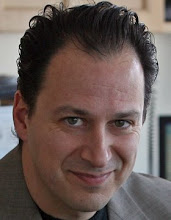Wednesday, February 23, 2005
Identity Theft At ChoicePoint Inc. Threatens National Security, According To Robert Siciliano Of IDTheftSecurity.com
(BOSTON -- Feb. 23, 2005 -- IDTheftSecurity.com) Identity theft is growing in scale and sophistication. Its perpetrators are becoming more organized and affiliating with terrorist groups. Names, addresses, phone numbers, social security numbers, and dates of birth have been up for grabs for hackers who have penetrated as many as a dozen college databases in the past six months. Thieves have even gained access to huge corporations' databases such as the one at ChoicePoint Inc. Government and the business world are struggling to respond and controversy defines the efforts to develop regulations that would properly protect consumers.
"The system of identification is fundamentally flawed," said Robert Siciliano, author of "The Safety Minute: 01."
"The confluence of everyday cyber crime and terrorism further demonstrates the need for across-the-board countermeasures and changes in the way in which we identify people," Siciliano noted.
Siciliano is a nationally televised and quoted personal security and identity theft expert.
In October 2004, hackers infiltrated a University of California, Berkley database to render the identities of 1.4 million low-income healthcare recipients - and the people who provide the care - vulnerable. A recently passed California law, SB1386, requires companies and state agencies to inform Californians of any security breach potentially jeopardizing the identities of 500,000 or more people. The university complied.
"I applaud laws that require officials who suspect wide-scale identity theft to alert those who may be victims," said Siciliano.
According to Siciliano, California's law may have prompted ChoicePoint, the large Georgia-based data mining company, to alert Californians to their possibly compromised identity information earlier this month. Only later, after facing pressure from 38 state attorneys general, did ChoicePoint admit that the crime's scope was far greater, The Globe and Mail and others report. Two U.S. senators have called for hearings and stepped-up regulations to protect consumers.
"Criminals easily gained access through the front door of ChoicePoint's database," said Siciliano.
According to ABC News, ChoicePoint is now informing approximately 145,000 people nationwide that thieves who fraudulently signed up with ChoicePoint may have stolen personal information. The Associated Press reports that victims could be from all 50 states.
"Nobody should be surprised," Siciliano said.
"What is disconcerting is how long ChoicePoint took to admit the crime's full scale. Clearly, we cannot count on these companies, who have access to so much of our personal information, to alert the public in a timely manner when security is breached. Tougher legislation is necessary. ChoicePoint may have revealed the situation's full gravity to all those affected - and sooner - had laws similar to California's compelled the company to do so elsewhere," he added.
"Security failures such as what we've witnessed with ChoicePoint will happen again. It is up to business leaders and government officials to clamp down on identity thieves and develop a strategy to let consumers know when their identities have been stolen," Siciliano said.
The data mining industry is consolidating and expanding control over people's identities, ChoicePoint is one example. Credit records, legal records, information on consumer habits and even the minutest details about people's lives are all filing into a dwindling number of databases of increasing sizes that are becoming more susceptible to theft.
"This is not simply a question of consumers' rights," said Siciliano.
"It's a matter of national security. Although these databases can help crime fighting, when they are compromised, national security is at risk," he said.
As reported in The Washington Post and elsewhere, ChoicePoint and companies like it are beginning to operate as private intelligence services for national security and law enforcement tasks. In this capacity, these companies can circumvent privacy and information laws that constrain government bodies. By getting around these, they support Homeland Security activities.
A Nigerian man has been sentenced to 16 months in jail for his involvement in the crime against ChoicePoint. Authorities suspect he was part of a larger criminal network. Organized crime's link to identity theft has precedent. This past October, law enforcement officials suspected Russian mobsters to be behind a major identity theft racket in Brighton, Mass. Over the past year high-profile phishing attacks and e-mail scams have originated from Nigeria.
"Organized international crime rings could easily collude with terrorist networks," said Siciliano.
"A clever and properly equipped computer hacker could bring nations and monetary systems to their knees. A dirty bomb could detonate in a crowded city street and kill thousands - all courtesy of the terrorists who, through identity theft, could easily forge identities, enter the country illegally and -in someone else's name - fund the entire operation," he said.
Siciliano is available to discuss identity theft. A speaker who leads seminars nationwide, he has appeared on CNN, MSNBC, FOX News, "ABC News with Sam Donaldson," "The Montel Williams Show," "Maury Povich," "Sally Jesse Raphael" and "The Howard Stern Show." He has been featured by Reuters, RealtyTimes.com, Woman's Day, Good Housekeeping, Mademoiselle, The New York Post, The New York Times and The Washington Times.
More information is available by contacting Siciliano directly or via STETrevisions, strategic communications Brent W. Skinner, president, at (617)875-4859, by faxing (866)663-6557 or e-mailing BrentSkinner@STETrevisions.com.
CONTACT:Robert SicilianoP.O. Box 15145Boston,Massachusetts 02215PHONE.(888)742-4542FAX. (877) 232-9669E-MAIL: Robert@IDTheftSecurity.comhttp://www.idtheftsecurity.com
